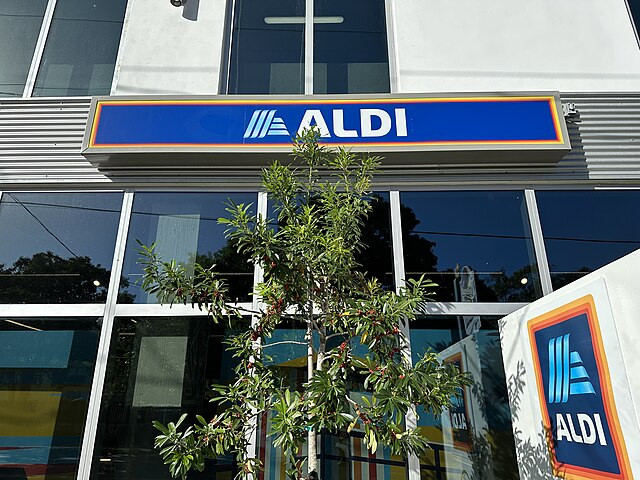Aldi, the German-owned, Illinois-based discount grocery chain, has unveiled an ambitious plan to add 800 new stores in the United States over the next five years. The expansion, which comes with a $9 billion price tag, aims to strengthen Aldi's presence in its existing strongholds in the Northeast and Midwest while also venturing into new markets in the West, Southern California, and cities like Las Vegas.
Aldi's chief executive, Jason Hart, emphasized the company's commitment to growth and customer satisfaction in a statement released Thursday. "Our growth is fueled by our customers, and they are asking for more Aldi stores in their neighborhoods nationwide," Hart said. "With this commitment to add 800 stores in the next five years, we'll be where our shoppers need us while positively impacting the communities we serve."
The expansion plan comes on the heels of Aldi's completed acquisition of Southeastern Grocers, the parent company of Winn-Dixie and Harveys Supermarkets. As part of the growth strategy, Aldi plans to convert a significant number of these locations in the Southeast into Aldi stores, with approximately 50 stores set to begin the conversion process in the latter half of 2024 and the majority reopening under the Aldi banner in 2025. However, a "meaningful amount" of Winn-Dixie and Harveys locations will retain their original branding.
Aldi's announcement comes at a time when U.S. shoppers are grappling with higher food prices, leading many to cook at home more often as restaurant dining becomes an unaffordable luxury for some. The discount grocer, known for its low prices and private-label selections, aims to provide consumers with the "lowest possible prices during a time when consumers are more focused than ever on saving money," according to the press release.
Neil Saunders, retail analyst and managing director at GlobalData Retail, sees Aldi's expansion as a direct challenge to traditional grocery players. "Aldi's expansion shows that it's throwing down the gauntlet to traditional grocery players," Saunders said, adding that it's a "major challenge to the market which could cause significant disruption and pain for other retailers."
Aldi's low-cost business model, which boasts prices up to 50% cheaper than traditional supermarkets, relies on smaller store sizes (around 12,000 square feet compared to the typical 40,000 square feet of a U.S. supermarket) and a focus on private-label brands, which account for more than 90% of the products sold in its stores.
The chain's expansion plans are "fortuitous" for consumers, according to Saunders, as shoppers are increasingly seeking out better deals and value-oriented outlets like Aldi in the face of persistent inflation and high grocery prices. "Ultimately Aldi's expansion is good news for US consumers. However, it will ramp up the competitive pressure in the grocery market," Saunders noted.
Aldi's growth strategy comes as the proposed merger between grocery giants Kroger and Albertsons faces regulatory hurdles. If approved, the combined entity would operate approximately 4,500 locations, still trailing behind Walmart, the nation's largest grocer, with nearly 5,000 stores. Aldi's planned expansion will bring its U.S. store count to nearly 3,000 locations, solidifying its position as a major player in the grocery industry.
The discount grocer has been investing heavily in its U.S. operations in recent years, spending more than $5 billion to remodel existing stores and open hundreds of new locations. According to SupermarketNews.com, Aldi currently ranks as the 13th largest U.S. grocer and the fastest-growing grocery retailer in the country.
As Aldi embarks on this ambitious expansion plan, traditional supermarkets will need to reassess their strategies to remain competitive. A report from market research group Dunnhumby warns that Aldi's growth poses a viable threat to established players, particularly in Southeastern markets like Florida. "Retailers everywhere should be examining their private brand, pricing, assortment, digital, and real estate strategies in response to Aldi's move, to build protective moats for an uncertain future," the report stated.





